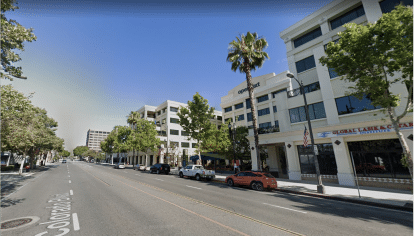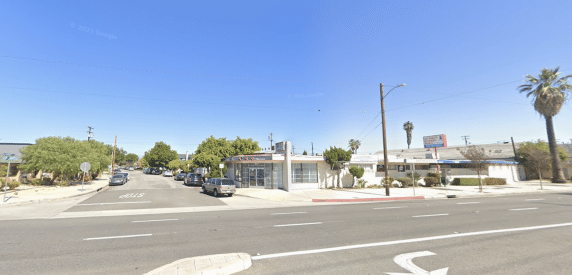
If you are looking for bail bonds in Anaheim, we are here to help you. As a trusted bail bonds company in the local area, our bail bondsmen are always available when you need us the most. Count on our bail bond services when you need a bail bond agent.
Learn more about how our bail bond company can help you below, and contact us to learn more!

Our Anaheim bail bonds agents have extensive experience and are experts in the California legal system. They are dedicated to acting quickly and efficiently to secure your release. It's about speed and providing a comforting presence and understanding during such difficult times.
As one of the top bail bond agencies in the local area, we have worked hard to develop strong relationships within the justice system. If you or a loved one has been arrested, we can lean on those relationships to force your paperwork through the system more quickly and help you or your loved one get out of jail as quickly.
Being arrested is a daunting experience, and the bail process can seem confusing. At CBB Bail Bonds, we strive to make this process as straightforward and swift as possible. Below is a more detailed look at the steps involved:
Remember, our team at CBB Bail Bonds is here to help you navigate these steps with as little stress as possible. We offer prompt, professional, and compassionate service to help secure a quick release from jail.

Nobody should have to spend any longer in jail than they have to, and the good news is that multiple types of bail bonds are available. A few types of bonds that you might use to get out of jail include:
Cash bonds require the full bail amount to be paid upfront. Due to the high cost, this can be difficult for many people, but the money will be returned (minus court fees) once the defendant appears in court as required.
A surety bond, the most common type, involves a bail bondsman who guarantees the court that the defendant will appear in court. If the person charged with the crime does not show up for court, the bondsman is responsible for the full bail amount. The person securing the bond typically pays a fee (usually 10% of the bail amount) to the bail bondsman.
In a property bond, real estate owned by the defendant or someone on their behalf is used as collateral for the bond. If the defendant doesn't attend court, the court can initiate foreclosure proceedings on the property.

At CBB Bail Bonds, we aim to be more than just a service provider. We strive to be your reliable companion throughout the often stressful legal process. Here are the key benefits you get when you choose us:
Choosing Anaheim Bail Bonds means choosing peace of mind. We will stand by your side throughout the entire process, ensuring a smooth and fast release from custody. You'll benefit from our expertise and efficiency and the compassionate and respectful service we're known for. In times of trouble, you can always rely on CBB Bail Bonds.
You can find the Anaheim Police Department at 425 S Harbor Blvd, Anaheim, CA 92805. The Anaheim Detention Facility is located within the same complex.
The North Justice Center Courthouse handles Anaheim cases at 1275 N Berkeley Ave, Fullerton, CA 92832. If you have questions about where to go, contact our team.

At CBB Bail Bonds, we're ready 24/7 to support and help you secure a fast release from custody. Remember, CBB Bail Bonds is here for you during these challenging times. We provide the caring, swift service you need to navigate the legal process and secure a fast release.
We firmly believe that everyone is innocent until proven guilty, and we think it will be easier for you to prepare the strongest possible defense if you are not in jail. If the court decides to grant you bail, we will work with you to help you post your bail as quickly as possible, allowing you to get out of jail, work with a defense attorney, and prepare a strong defense.
Contact us today to learn more about how we can help you.
We always take the time to answer your questions before we get started. Some of the most common questions people ask us include:
What happens if the defendant fails to appear in court?
A bench warrant is issued for arrest if a defendant misses a required court appearance. The full amount of the bond is due immediately. For a surety bond, the bail bondsman may hire a bounty hunter to locate and return the defendant to custody. You must ensure that you attend all of your court dates in Anaheim, CA.
Can a bail bond be revoked?
Yes, bail can be rescinded if the defendant violates the terms of their release. In such cases, the defendant is taken back into custody, and the bail amount is forfeited.
How long does the bail process take in Anaheim?
The length of the bail process can vary, but generally, once a bail bond is posted, release can usually occur within 2 to 10 hours, depending on the workload of the jail.
What if bail is not posted at the Anaheim City jail?
If bail is not posted, the defendant will remain in jail until their court date or until bail is posted. In some cases, the judge may release the defendant on their own recognizance, meaning without a need to post bail.
What are my other options besides using a bail bondsman?
Apart from using a bail bondsman, you could pay the full bail amount in cash, use a property bond if allowed, or be released on your own recognizance.
Once bail is posted, how long until the release occurs?
Once bail is posted, it can take anywhere from 2 to 10 hours for the release to occur. The exact timing depends on the jail and how busy they are.
"*" indicates required fields






